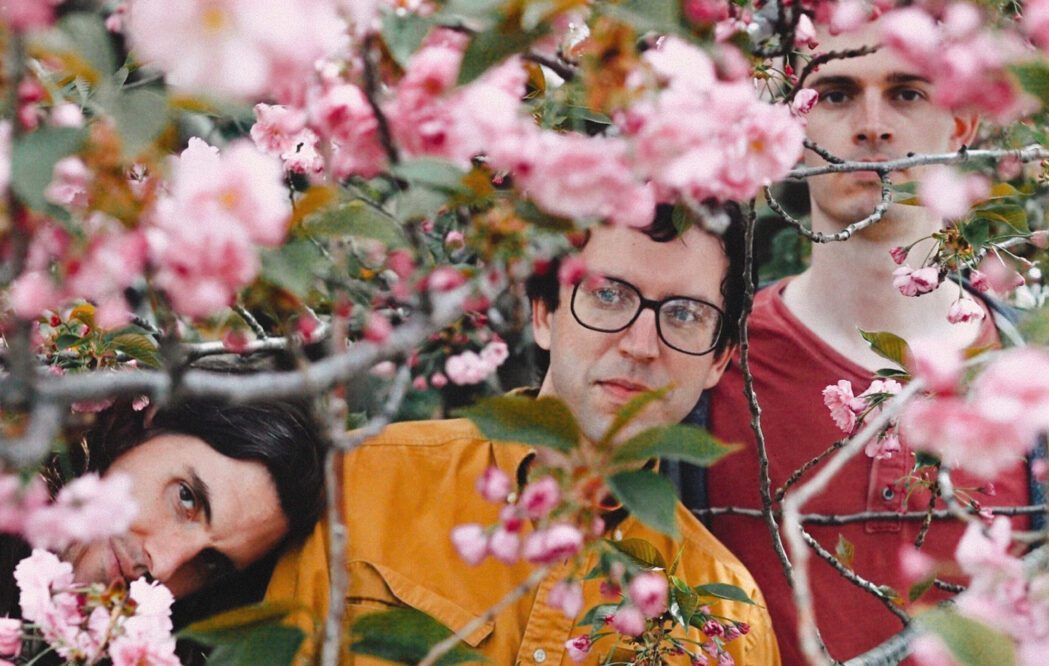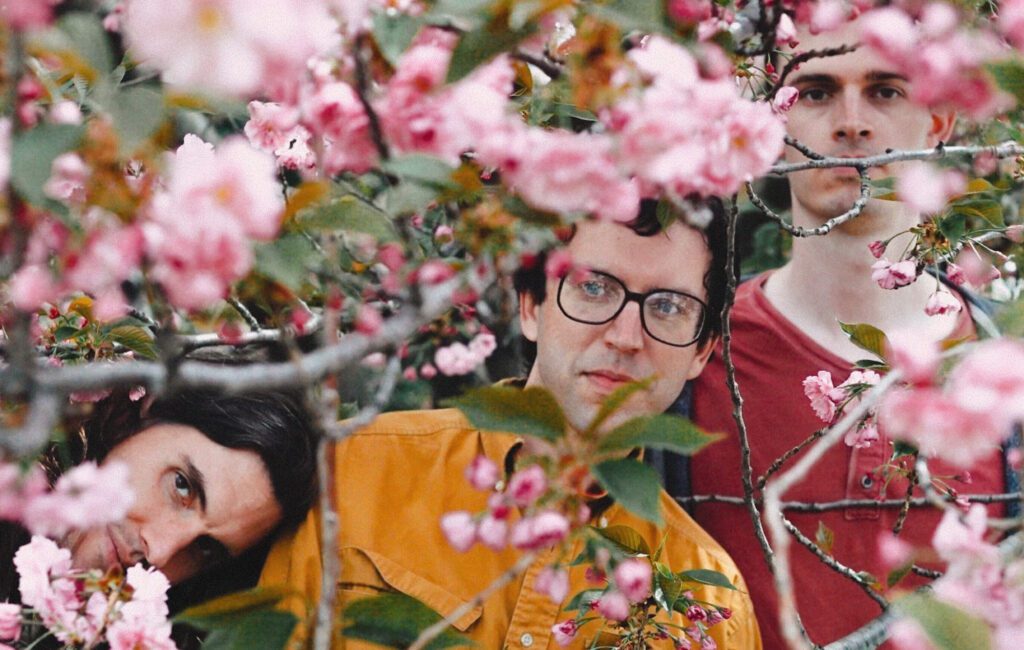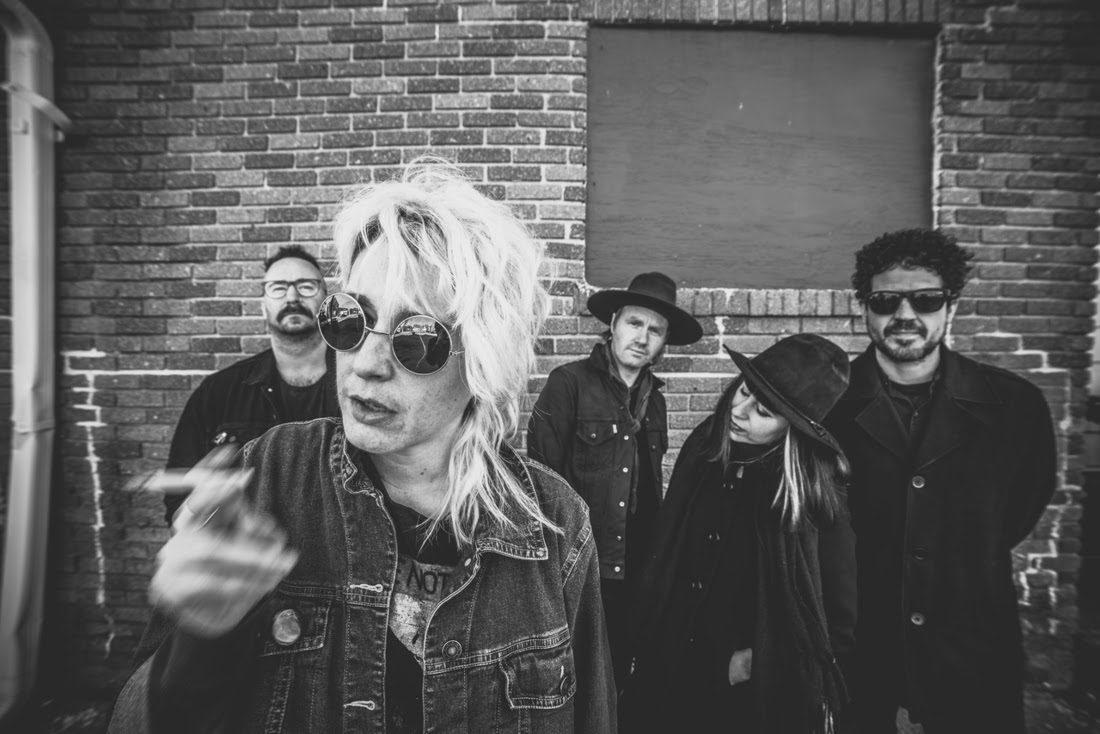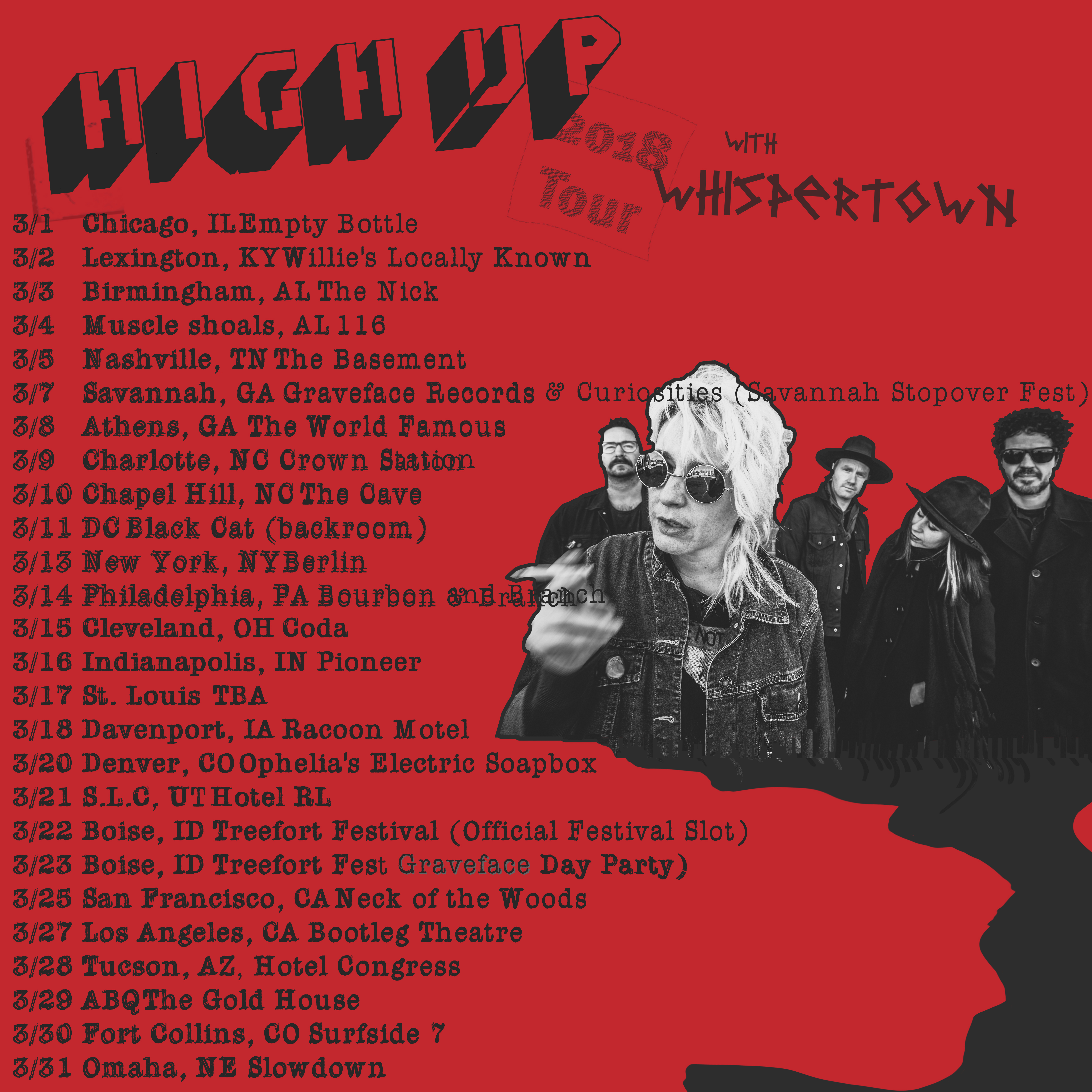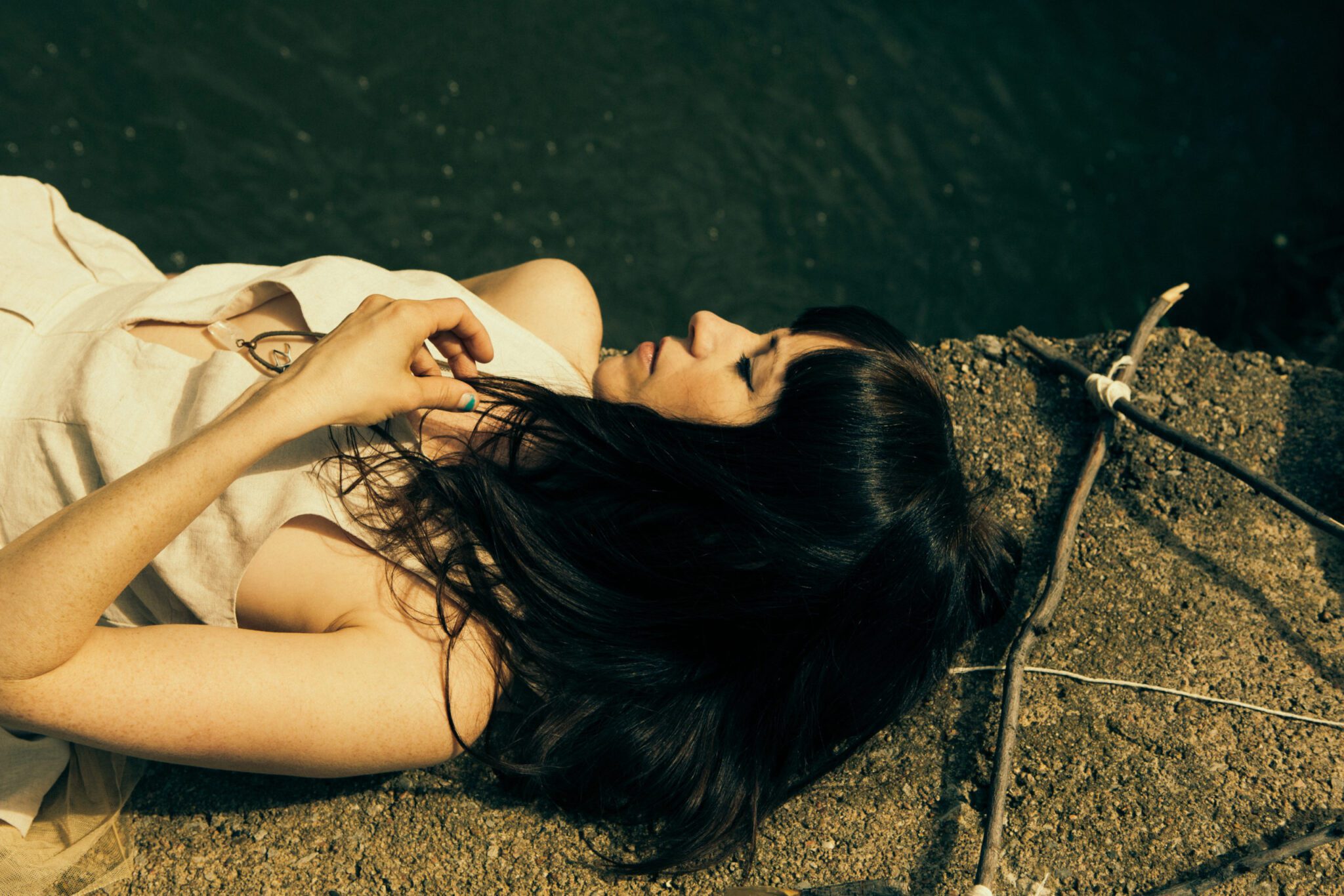
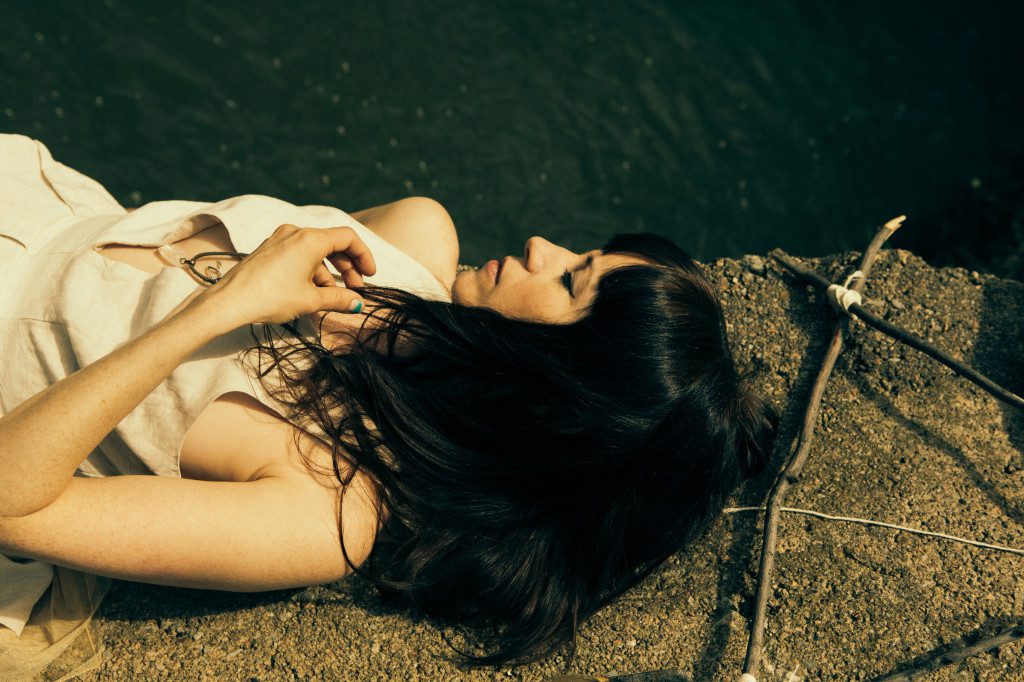
We are all searching for something on this earth. Whether it is truth, love, acceptance, or even validation, we’re convinced that the questions we have are deserving of answers. But we spend so much time looking out into the world for answers that we sometimes forget to look within ourselves. Singer-songwriter Orenda Fink’s third solo album Blue Dream utilizes self-exploration first and foremost to answer life’s biggest questions. Prompted by a series of dreams about death, Orenda began writing introspective songs that expressed precisely what she experienced through her dreams. She’ll share those thoughts with the world on August 19th, when Blue Dream is released.
It has been said many times that dreams have varied, and invariably deep meanings, and with Orenda’s new album comes an opportunity for all of us to dig deeper into our own unconscious selves. While her previous solo LPs Invisible Ones and Ask the Night relate to events in her life, Orenda feels as though Blue Dream is far more personal than anything that she has created before. With this album, Orenda finds new ways to cope with immense pain and heartbreak. She truly believes that if we gain a better understanding of death, then we can live a better life — an intriguing perspective that challenges us to dig a little deeper, rather than just continue on, scratching the surface of our feelings. I was fortunate enough chat with Orenda about Blue Dream, as well as her progression as a musician. Here’s what went down.
AF: How would you describe your music and your sound?
OF: I usually use the words melancholic and ethereal for music and sound. I usually write about things that are very personal. I guess it’s confessional in some ways, but maybe slightly a little romantic too.
AF: What affect do you think growing up in the south has had on your music? Do you feel as though it is a strong presence in your songs?
OF: Yeah, I think that growing up in the south definitely had an effect on my music, it’s not an obvious literal musical influence, but it’s not just in sensibilities. I tend to think that the south is kind of romantic. I mean people take issues and they kind of get blown up into these kind of archetypal situations of epic proportions (laughs). At least in the deep south where I come from, and I think I get that flair for the dramatics probably, from the south. But also…you know I think there’s just something about the heat and the humidity there. It kind of holds people, holds emotions in; kind of pulls them together until they’re almost visible, tangible things outside of your own body. You know, like you can…almost have an experience with them. Like ghosts I guess, they’re almost like spirits; and I feel like that’s something from the south that seeps into my work. It’s kind of that true connection with things that could leave you, but they don’t.
AF: Tell us about your upcoming album Blue Dream. What was the creative process like for you, and what are you most looking forward to?
OF: Well the creative process for Blue Dream…I mean it kind of feels like a dream in a way because I started writing it after my dog died. Which doesn’t seem like probably a huge deal for a lot of people, but I had him for 16 years, and we had an extremely codependent relationship with each other (laughs). I mean I took this dog all over the world. So it was really really painful when I lost him. But outside of that, I had this deeper emptiness when he left that was kind of like…in a way, an existential crisis where I realized I didn’t have a framework of how to deal with death. You know, whether it be a dog, or my husband, or my friends, or myself, and it kind of left me reeling for the better part of the year, until I started doing this dream analysis through psychotherapy and during that time I just was having an insane amount of dreams, every single night, and they were all about death. And my dog was in a lot of them, but not all of them. And this went on for about six months, and I felt like I was having the answers or something close to the answers said to me, through my dreams; in a way that I could never have imagined. You know, because in my conscious waking life, I felt despondent and kind of nihilistic about everything at that point. But in my dreams there were different stories unfolding that pointed away from that. It was a powerful time for me and that was when I started writing this record. It’s not necessarily a concept record; it’s not a record about death, or not a record about a dog, or anything like that but these are the things that were happening in my life while I was writing this record. I was just writing and writing and one day I realized at the end of it that I was standing outside of the tunnel looking in, instead of in the darkness and thinking “I think I’m out of the tunnel. And I think I have correctors.”(laughs) So that was kind of what the process was. I think the creative process was going on in my dreams and the writing was just something I did outside of that.
AF: In what ways would you say that this album is different from your last two solo projects?
OF: Some people might chuckle at this, just because of the nature of my writing; but I do feel like this record is more deeply personal than the other two solo records, just because of where I was when I wrote it. You know, when I wrote the other records I wanted to break away from singing about love and love lost which was a big theme of Azure Ray ‘s because I was happily married and I just didn’t really feel those emotions, so I was looking for outside influences with Invisible ones and Ask the Night, you know Invisible ones was heavily influenced by my travels to Haiti, and Ask the Night was kind of like an exploration of southern Gothic folklore if you will, so even though those records related to me in a personal way, they weren’t deeply personal like this record is. This is the first time that I feel like I’ve felt this kind of intense heartbreak of a different nature, but that I had felt during that Azure Ray work.
AF: What is your favorite song on the album?
OF: Hmm that’s a tough one, I mean it’s hard to say because I feel like they do kind of represent different stages of that year, so there’s ones that are more redeeming, and something that are just in the darkness. And so, it’s kind of a journey for me. It’s hard to pick one or the other, but I guess I’d say either “Holy Holy” or “Poor little bear.”
AF: My favorite is definitely “You Can Be Loved” — it’s just so beautiful.
OF: Aww thank you!
AF: So I know that in the past some of your solo music was inspired by Haitian Folk music, is this also the case with your new album?
OF: You know, someone else asked me this question. I’d say probably not consciously, but when I kinda look back at some of the backing vocals, and the treatment for “This Is Part of Something Greater” it kind of has…what I hear as plaintive cries and traditional voodoo folk music. You know, I love the way the women sing and they just belt out these plaintive cries kind of in unison so I think maybe inadvertently I just hear that sometimes in my head as the backing part, without even meaning to. It’s what my ear wants to hear as part of the piece. So I think there could be some unconscious influences in there for sure (laughs).
AF: I feel like many people search for the meaning of life, but very rarely do you hear about someone searching for the meaning of death. So on your journey what did you find, in searching for the meaning of death?
OF: It’s interesting, because I feel like that’s such a good observation, but you know they’re so closely connected, but it’s just that death is scary. It’s horrifying, and that’s why you don’t search for the meaning of death because you don’t wanna think about it. You just wanna think about life, because that’s what’s in front of you, and death is this terrible thing at the end that’s unavoidable but you have to literally deny it in order to live a full life. So it’s really tricky to go down the rabbit hole for the meaning of death, and it was a weird place that I was in but I guess I feel that exploring the meaning of death can help you live your life. Through my dreams I found that I have less of a fear of death, or less of a fear of losing because I don’t feel like anyone can really know what the meaning of life or death is, but I think that through some real searching you can find out what it isn’t. If that makes sense. And I feel like what I do know now is that there is some kind of life after death. What it is? I’m not sure. But I feel like that’s what’s been told to me through my dreams and I think they’re just as good a source as anyone else in the world that tries to tell you what they think, because it’s a direct source from you; your wisdom that you can’t access in the conscious realm.
AF: I read somewhere that you feel very strongly about the idea of human beings healing, through finding their “Interior God.” Could you elaborate on this concept? I’d love to hear more about it.
OF: That is actually a quote from Alejando Jodorowsky. He’s a filmmaker, a writer; he’s made the movies El Topo and Santa Sangre and Holy Mountain. He’s an amazing experimental art film director. He’s also written a lot about spirituality, and magic and art and how they connect. So that quote is a direct quote from him that I just felt like really summed up the work that I had done, the dream work; and the journey I had gone on which is that your Interior God is basically just a way to tap into the source of something that is beyond your conscious mind because our conscious mind only drives about 10% of our actions, our thoughts, our feelings. There’s this whole other welt of something, we don’t understand what it is that is really driving the ship. And I think in that there are some archetypal truths about life and death and humanity and if you can tap into that, that’s your “Interior God.” That’s what anyone who’s ever created any religion has done. Or any kind of spiritual philosophy, I feel like is basically just people tapping into their “Interior God” and trying to essentially translate what their hearing. So I guess that’s why I feel like if you can find that within yourself it’s gonna be the purest source of information. Cause everyone can tap into it. You don’t have to have someone tell you what it is. Not to say that it’s not good to listen to a certain type of religious or spiritual background, but I think that it can work in conjunction to find like a more truthful version of life and death when you listen to your own self. And that to me is your “Interior God.” It’s the collective unconscious, it’s your personal conscious, and it’s tied into everyone that has ever lived.
AF: How have you progressed as a song writer? What are some important lessons that you have learned along the way?
OF: You know, it’s weird when you do this for a very long time, because I feel like you go in cycles that are kind of prolific, and have quality, and a lot of it has to do with inspiration I think, but also there’s an element of craft to it. That I… In previous years sometimes I kind of just scratched the craft element and just went on pure inspiration. So I feel like even though this record is darker than a lot of my other stuff, it’s “poppier” in a way. I kind of like revisited the craft of writing a song. Like the pop structure and I think that’s easy sometimes when you have heady, heavy subject matter. It’s more digestible if you can deliver that in a way that is beautiful and pleasing to the ear, so I guess I learn lessons with every record that I write, but this is where I’m at right now so we’ll see how it plays out.
AF: What are some advantages and disadvantages to being a solo artist as opposed to being in a band?
OF: Well I definitely love collaborating with people. That is where my heart is. But I do think it’s important to release solo records because they are the most self-indulgent type of art. You don’t have to consult with anyone, it’s all about you, but I think like for me, especially on this record; I don’t think it would be fair to another collaborator to even share this material with them. You know, because it is so deeply personal, but I think there is an advantage to having a solo outlet that you can do that, but at the same time I do feel like I am a collaborator at heart, I love working with other people. I feel like mentally it’s really good for an artist because you get to share the creative process, but then you also get to share the heartache, or the celebration, the triumph, all of it. And I think that being a solo artist is a little isolating for me, but I like having the option to do both.
AF: Dead or alive, who would your dream collaboration be with?
OF: Oh Gosh (laughs ). Alive: Dr. John, and Dead: Nina Simone. I actually ran into Dr. John at the Atlanta airport a couple months ago! I got off my gate and he was sitting in the airport wheelchair at the gate that I got off of and I was like: “Oh my God! Dr. John!” And I could tell he was like trying to get help and no one was helping him. So I got up my courage and I walked over and I was like: “Are you Dr. John?” and he was like “Yes.” And then I was like “Do you need help?” And then he was like “Honey, I do need help.” And he said “Would you come stand in that line for me?” And I was like “I would be honored to! (laughs).” So I stood in line for him and I got him help, and he gave me a huge hug and was like “Do you wanna take a picture with me?” And I was like “Yes!” So that’s my weird little Samaritan moment with my biggest idol ever.
AF: You got a picture with him too? That’s so cool! Are there any upcoming shows or live performances that our readers should know about?
OF: Yeah. I’m hopefully doing a tour in September. But we’re still putting that together. So my plan is to do a full length tour but I’m not sure if I’ll be supporting someone or going out on my own so that to be determined. But a tour is being planned, which is something I haven’t done in a while.
Orenda Fink’s album Blue Dream is out on August 19th. Check out her first single off the album, entitled “Ace of Cups,” below.
